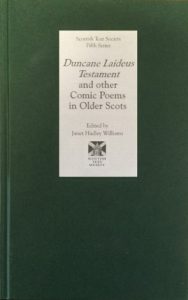 Duncane Laideus Testament and other Comic Poems in Older Scots, ed. Janet Hadley Williams ISBN 9781897976388 [MORE INFO] [BUY MEMBERS] [BUY NON-MEMBERS]
Duncane Laideus Testament and other Comic Poems in Older Scots, ed. Janet Hadley Williams ISBN 9781897976388 [MORE INFO] [BUY MEMBERS] [BUY NON-MEMBERS]
Welcome to the Society’s first ever virtual launch! We are delighted to have spent a day on social media celebrating the STS volume for 2016, Duncane Laideus Testament and other Comic Poems in Older Scots edited by Janet Hadley Williams. The various posts and extracts from the edition have been collected on this page for our readers who do not access social media, and for safe-keeping.
Dr Hadley Williams is a member of Council, and a highly experienced editor, particularly of Sir David Lyndsay. She has published extensively on sixteenth-century literature, and has been very influential on our understanding of writing from the reign of James V and the minority of Mary and beyond. Her work with Lyndsay, represented in this collection by The Complaint of Bagsche, led her to consider other surviving comic poems from sixteenth-century Scotland. This edition not only enriches our understanding of each poem individually, but also enables readings across the poems, to gain a much deeper familiarity with the tropes and conventions of early modern comic verse.Dr Hadley Williams’ work is marked by a meticulous attention to detail, in her handling of the manuscripts and in the presentation of the texts. Each of the eleven texts, none of which were previously available in modern scholarly editions, is accompanied by an extensive head note. As well as providing accounts of the poems' witnesses, these headnotes discuss date, language, authorship and key features such as genre, metre and audience. In addition, the texts are also accompanied by explanatory notes and a full glossary, to support further study and close reading. As is the case with all STS editions, the purpose of Duncane Laideus Testament is to enable and support critical reading and appreciation. In order to explore further the qualities of this edition, over the course of the day, extracts from the edition, both text and notes, will be posted, interspersed with other critical comments from scholars who have already begun to use the edition in their own work.
Over the last few years, the Society has published different kinds of editions. Some of them have been either single-text or single-author based, such as John MacQueen’s edition of Archibald Pitcairne’s Phanaticks, Ralph Hanna’s editions of The Buke of the Howlat and Golagros and Gawane, and the 2017 volume, Kate McClune’s The Poems of John Stewart of Baldynneis. These kinds of editions are very familiar. They speak to our post-Romantic sense of the author and text, and they remain the backbone of literary critical understanding. However, other recent editions have been more transmission-focused. Notably, in editing one key manuscript, the Maitland Quarto, Joanna Martin was able to locate Richard Maitland’s oeuvre in its context of circulation and reception, and enable us to think about audience more clearly. Alasdair MacDonald’s edition of the Gude and Godlie Ballatis presents the earliest text of the collection, from 1565, and enables us to consider that first point of publication, and to note more effectively the changes that the collection experienced as the Scottish Reformation progressed.
Duncane Laideus Testament and Other Comic Poems in Older Scots is a different kind of edition: an edition based on genre. Previous examples in the STS back catalogue include Rhiannon Purdie’s recent Shorter Scottish Medieval Romances and the older J.A.W. Bennett’s Devotional Pieces in Prose and Verse. An edition based on genre enables many things. It brings together and makes available texts that are often anonymous (as in this collection) and for that reason not always edited by themselves; or scattered in a variety of witnesses (although many of the poems in this collection are found in the Bannatyne Manuscript, some are not and have been neglected); and share tropes and allusions more clearly explained in other texts in the collection. Bringing these poems together here enables readings across the poems to understand sixteenth-century expectations of comic verse and how their rhetoric works.
Even from the brief extracts, the variety of metrical forms will be obvious: these range from the alliterative metre of 'My guddame' (aka 'Kynd Kittock') and The Gyre Carling to the four-stress couplets of Lord Fergus Gaist and the longer-line stanzas of Lyndsay's Bagsche. Some of these poems are burlesque, in their subversion of serious forms – Duncane Laideus Testament is the most obvious; others simply tell scatalogical stories. In each case, the skill of poet in making his form work, and drawing out the comedy from it deserves our appreciation at his skill, even if the humour is not always to our taste!
Comic verse from previous centuries is often quite difficult to appreciate. Many of us, for instance, will have wondered at least once in our lives why Shakespeare’s comedies are so called, and quite possibly will find some poems in Duncane Laideus Testament and Other Comic Poems rebarbative in their aggressive and – to our eyes – prejudiced attacks. Moreover, consulting footnotes is almost guaranteed to turn a poem into hard work, so the more allusive and topical a poem is, the less accessible it is to a modern reader to understand let alone find funny.
However, in its detailed headnotes, this edition points out what we should look for, and the notes and the glossary provide further explanation. There is no doubt that the subject matter of many of these poems is crude and vulgar, written in a low register, tending towards the scatological and the bodily. However, we should dismiss them as unsophisticated and not worth serious engagement. As Chaucer’s Miller’s Tale reflects and comments on the Knight’s Tale, so the poems here undermine and subvert expectations set by the romances and by poems such as the Kingis Quair. Writers like Dunbar and Douglas have these extremes visible in their corpus anyway, Dunbar most obviously: at the very least, these poems demonstrate that the Makars operated in a broader context of expression, and that these kinds of poems appealed widely, but we should also recognise their qualities in their own rights, and thank Dr Hadley Williams for bringing them so adroitly to our attention.
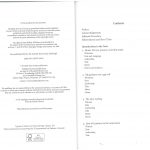 |
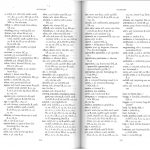 |
||
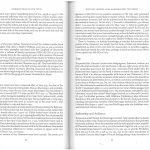 |
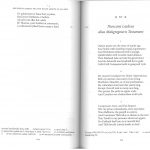 |
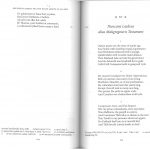 |
I’ve been vastly enjoying and learning from Janet Hadley Williams’s 2016 edition for the STS of Duncane Laideus Testament and (as the title continues) Other Comic Poems in Older Scots. It is a sequence of eleven comic and satiric poems, the earliest datable to the last decades of the fifteenth century, and the last to the late sixteenth or possibly a little after. I shouldn’t be surprised that one could learn so much about the concerns, modes, and continuities of Older Scots verse from such a collection, at least when it is prepared and presented by so genial and learned an editor. Parody, burlesque, fantasy, epistle, and mock-testament might seem on the face of it to be rather peripheral, ephemeral forms, but in Scottish hands they have an edge and heft that can make them quite substantial and far-reaching. Beginning in earnest to discover late-medieval and early modern Scots literature, one could do very much worse than to spend time with this compendious volume.
One of the revelations of this edition, now much more clearly and fully than before, is the extraordinary range of reference these poems possess. Dr. Williams demonstrates these Scots poets’ special flair for sampling from, alluding to, and reassembling a great diversity of materials. In thinking anew about this highly developed quality, I’m compelled to give you a striking instance, one which leaps out for me from the introduction and commentary. This comes from the lively, allusive, remarkably subtle poem known here by its opening line, “Quha doutis dremis is bot phantasye?” In the Bannatyne Manuscript, this poem is ascribed to a monk named Lichtoun. As Dr. Williams deftly shows, Lichtoun makes light work of balancing clerkly learning, academic discourse, and even Celtic tradition. Prominent among his fields of reference is medieval poetry in English and Scots, “especially Chaucer, Henryson, and Douglas, with whom he has much in common” (p. 20). Indeed: and what now becomes clear is just how very confidently and adeptly Lichtoun, like other poets named and anonymous in this volume, handles such material.
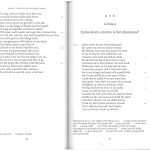 |
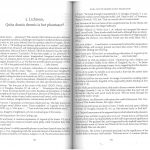 |
Dr. Williams notes that Lichtoun’s opening reference to extasye recalls Henryson (in The Testament of Cresseid) and Douglas (in The Palice of Honour and at the end of the Eneados). She has much more to say about connections between Lichtoun’s poem and Douglas. Turning to her notes, I began to wonder whether the connections suggest something of a parody in the making. The drastic, punitive dream state, the restless journeying “in mony diuers place” (l. 26), the sea voyage in storm, the ascent of the mountain, and the concluding fall into a henslaik (l. 85) all seem to trace a pattern familiar from The Palice of Honour. But have I just taken Lichtoun’s playfulness all too seriously? If there is parody here, it is, as the editor recognizes, finally less compelling a quality than the demonstration, at high velocity, of sheer inventiveness. Dr. Williams is illuminating, as elsewhere in the volume, about “the role that imbibing can have in the creative process” (p. 21). In her fine edition, valuable discoveries involve just such glimpses of conviviality, and textual communities, in the making.
University of Saskatchewan
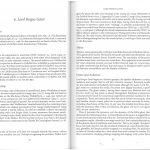 |
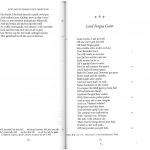 |
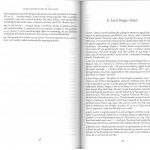 |
|
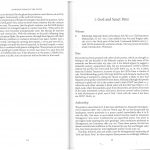 |
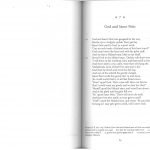 |
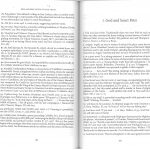 |
As a student whose thesis focuses on a number of the poems within this collection, Hadley William’s volume is an indispensable research tool. It is meticulously researched and provides the starting point for many strands of investigation into this genre. However its appeal lies in its accessibility.
Let me tell you a story.
A woman, a giantess, is pursued by an unrelenting suitor who assails her abode and wont leave her in peace. Finally she assaults the man, wounding him in a fit of comic book violence. Rather than being repentant, after all he attacked her first, she laughs so much that she cannot contain herself and farts, defecating to such a extreme that she creates a mountain. Attempting to escape, she is pursued by a band of magical, skilled opponents and is forced to flee to a foreign land.
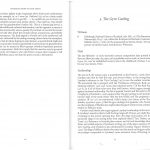 |
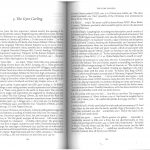 |
This is the narrative of just one of the poems contained within Duncane Laideus Testament and Other Comic Poems in Older Scots. It is a joy to see the poems in this collection get the attention they deserve. They are oft-neglected, in favour of more ‘serious’ literature, but are the ideal gateway to studying a variety of aspects of Older Scots. Hadley William’s collection is a perfect introduction to the genre as it makes the texts easily accessible. To have an accessible edition of these poems gives us the opportunity to engage a new audience. In a society that devours works of fantasy and the supernatural many of the poems in this collection evoke comparisons with modern phenomenas like Game of Thrones (the necromancer in Lord Fergus’ Gaist bringing to mind Qyburn, Cersei Lanister’s unethical and slightly bumbling maester who dabbles in necromancy himself). What school pupil won't laugh at a giantess who batters her suitor and then laughs so hard that she farts? Then there’s the old woman who, once dead, cannot remain in heaven because the beer’s not up to scratch! These are poems that will capture the hearts and minds of a younger audience because of their risqué, scatological content, and the narratives are suitable for a younger audience because of the humorous treatment. This edition could be the starting point for igniting interest and enthusiasm in literature of this genre.
University of Glasgow